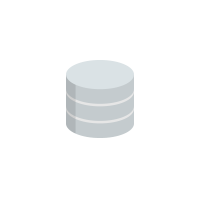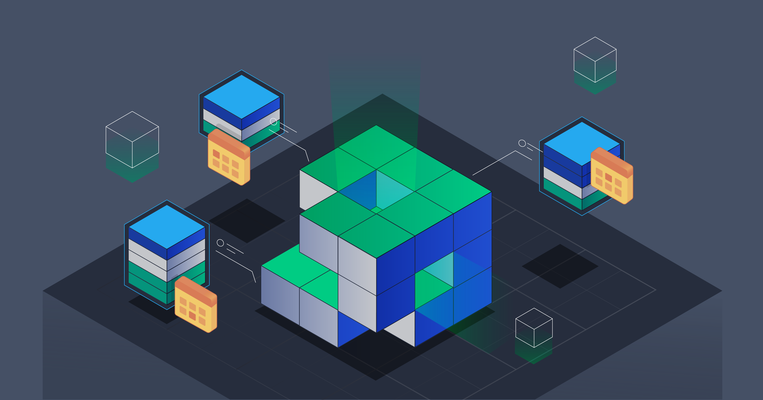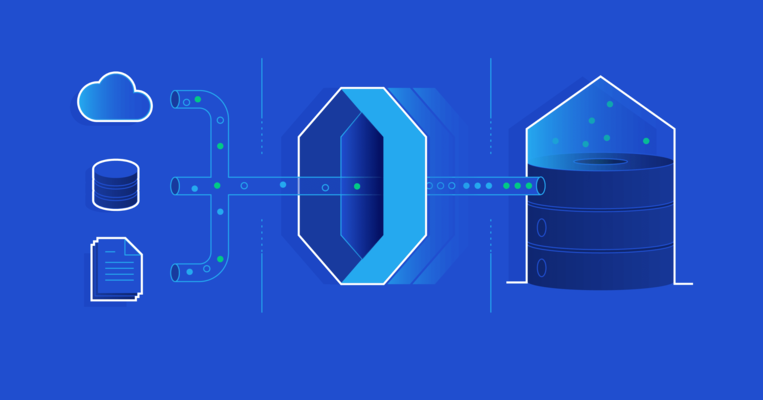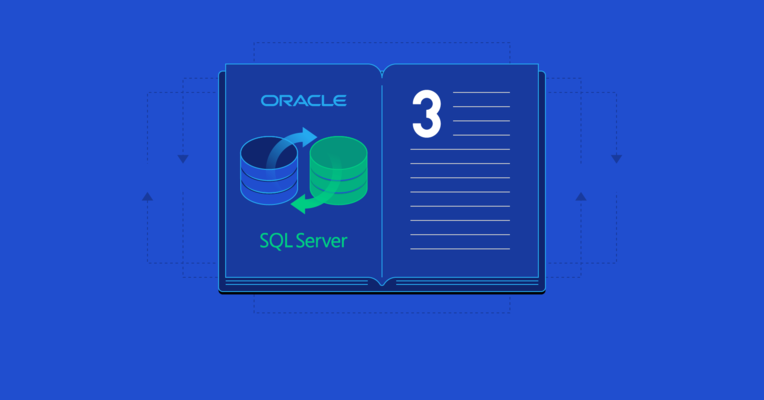
Hire Database Developers
Hire the Top 3% of Freelance Database Developers
Hire database developers, programmers, and professionals on demand. Top companies and startups choose database developers from Toptal for schema design, performance optimization, data warehousing, SQL/NoSQL development, and more.
No-Risk Trial, Pay Only If Satisfied.
Hire Freelance Database Developers
Davide Moraschi
Davide is a data engineer certified by Microsoft Azure and AWS and an experienced data architect. He is the author of "Business Intelligence with MicroStrategy Cookbook." With a career spanning two decades in data warehousing, using relational and NoSQL databases, Davide's job consists of loading, transforming, and visualizing large amounts of data. Lately, he has been working on Cloud Big Data projects with Fortune 500 clients.
Show MoreRade Pobulic
Rade has three decades of experience with Oracle products (database, tools, applications, middleware, and business intelligence). With so many years of hands-on, in-depth experience under his belt, it can safely be said that Rade is a world-class expert in Oracle databases, SQL tuning, and development. Recently, he's been working on Oracle Fusion Cloud Application implementations.
Show MorePeter Daniels
Peter is a seasoned data platform expert specializing in the Microsoft stack, including Azure. With skills ranging from data architecture and engineering to database administration and development, his 29 years of experience, multiple certifications, and passion for learning set him apart in addressing clients' diverse data requirements. Most recently, Peter helped a growing company migrate their on-premise data and AI estate into Azure as part of an ERP migration to Microsoft Dynamics 365.
Show MoreJeremy Barrio
Jeremy is a Microsoft SQL Server database administrator and T-SQL developer offering nearly 15 years of experience working with SQL Server 2008-2019, developing T-SQL queries and stored procedures, managing database-related projects, monitoring and optimizing databases, and developing and maintaining recurring automated processes using SQL jobs, SSIS, and PowerShell. Jeremy enjoys learning new technologies and excels with replication, HA/DR, and clustering.
Show MoreSam Woolerton
Sam is a seasoned full-stack data engineer with more than four years of experience. He uses Python to build data pipelines and integrate APIs, SQL to provide data modeling and data warehousing, and Power BI to create dashboards and reporting. Sam thrives in fast-paced environments and is comfortable working across different data stacks, whether providing end-to-end solutions or focusing on a specific part of them.
Show MoreSamuel von Stachelski
Sam is a senior Python developer with over eight years of experience. He has worked extensively on building internal web-based database applications where security, data integrity, and customized workflows are the primary focus. Sam's background in optimization algorithms and data mining, combined with his experience building server-side-heavy applications, is a strong foundation for developing complex and data-intense web applications.
Show MoreEvgenii Timofeev
Evgenii has around nine years of database development experience, with a primary focus on building and optimizing data warehouses. He started his professional career as an SQL engineer-analyst in one of RosTeleCom Mobile holdings and was promoted to analytical reporting team manager in two years. During his career, Evgenii has participated in several telecom OSS and BSS migration and integration projects, including Tele2 Rus, Optus AU, and Telenet BE.
Show MoreRakesh Kikani
Rakesh is a data engineer, lead database administrator, and data architect with more than 15 years of experience in MS SQL Server (2000 to 2019), SSIS, SSRS, reporting services, VB, Windows Server, Visual Studio, PowerShell, SQL optimization, and big data. Comfortable working in fast-paced, high-tech environments, Rakesh possesses robust technical skills in various areas of IT and is currently pursuing his interests in Python, machine learning, Power BI, and Google Analytics.
Show MoreTeimuraz Magradze
Teimuraz is a software developer with more than five years of experience in Oracle database and database design, programming, and tuning. He is proficient in PL/SQL, SQL, reporting, analyzing data, Visual Basic Studio, Python, Delphi, Visual Basic for Applications (VBA), and Microsoft Access. Teimuraz will be a great addition to any team.
Show MoreJoris Laperre
Joris is a passionate problem solver with a wealth of experience in relational database design and development, and .NET coding. He was the principal database architect for Microsoft's extensive enterprise healthcare system for several years. More recently, he has been building business intelligence solutions focusing on metadata-driven solution generation. Joris prides himself on delivering exceptional quality work at record speed.
Show MoreDiscover More Database Developers in the Toptal Network
Start HiringA Hiring Guide
Guide to Hiring a Great Database Developer
In today’s data-driven market, the demand for expert database developers is at an all-time high. Businesses know it is crucial to find skilled developers to design and maintain secure databases while streamlining operations and optimizing database processes. This guide explains what skills and experience to look for in an ideal candidate, offering sample interview questions and answers to help you find the best database developers for your project.
Read Hiring Guide... allows corporations to quickly assemble teams that have the right skills for specific projects.

Despite accelerating demand for coders, Toptal prides itself on almost Ivy League-level vetting.









How to Hire Database Programmers Through Toptal
Talk to One of Our Client Advisors
Work With Hand-selected Talent
The Right Fit, Guaranteed
EXCEPTIONAL TALENT
How We Source the Top 3% of Database Developers
Our name “Toptal” comes from Top Talent—meaning we constantly strive to find and work with the best from around the world. Our rigorous screening process identifies experts in their domains who have passion and drive.
Of the thousands of applications Toptal sees each month, typically fewer than 3% are accepted.
Capabilities of Database Developers
Database developers are critical in building the infrastructure that powers modern applications and data-driven decision-making. Their expertise spans schema design, performance tuning, and security implementation, enabling businesses to store, access, and manage data efficiently across high-volume, integrated systems with confidence and scalability.
Database Architecture Design
Stored Procedure and Function Creation
Complex SQL Query Development
Data Security Implementation
Application and API Integration
Database Performance Optimization
ETL Process Automation
Data Warehouse Development
Database Migration Management
Backup and Recovery Planning
FAQs
How much does it cost to hire a database developer?
The cost associated with hiring a database developer depends on various factors, including preferred talent location, complexity and size of the project you’re hiring for, seniority, engagement commitment (hourly, part-time, or full-time), and more. In the US, for example, Glassdoor’s reported average total annual pay for database developers is $117,000 as of August 2024. With Toptal, you can speak with an expert talent matcher who will help you understand the cost of talent with the right skills and seniority level for your needs. To get started, schedule a call with us — it’s free, and there’s no obligation to hire with Toptal.
How quickly can you hire with Toptal?
Typically, you can hire database developers with Toptal in about 48 hours. For larger teams of talent or Managed Delivery, timelines may vary. Our talent matchers are highly skilled in the same fields they’re matching in—they’re not recruiters or HR reps. They’ll work with you to understand your goals, technical needs, and team dynamics, and match you with ideal candidates from our vetted global talent network.
Once you select your database developer, you’ll have a no-risk trial period to ensure they’re the perfect fit. Our matching process has a 98% trial-to-hire rate, so you can rest assured that you’re getting the best fit every time.
How do I hire database developers?
To hire the right database programmer, it’s important to evaluate a candidate’s experience, technical skills, and communication skills. You’ll also want to consider the fit with your particular industry, company, and project. Toptal’s rigorous screening process ensures that every member of our network has excellent experience and skills, and our team will match you with the perfect database developers for your project.
How are Toptal database programmers different?
At Toptal, we thoroughly screen our database professionals to ensure we only match you with the highest caliber of talent. Of the more than 200,000 people who apply to join the Toptal network each year, fewer than 3% make the cut.
In addition to screening for industry-leading expertise, we also assess candidates’ language and interpersonal skills to ensure that you have a smooth working relationship.
When you hire database professionals with Toptal, you’ll always work with world-class, custom-matched database developers ready to help you achieve your goals.
Can you hire database professionals on an hourly basis or for project-based tasks?
You can hire database developers on an hourly, part-time, or full-time basis. Toptal can also manage the entire project from end-to-end with our Managed Delivery offering. Whether you hire a database developer for a full- or part-time position, you’ll have the control and flexibility to scale your team up or down as your needs evolve. Our database developers can fully integrate into your existing team for a seamless working experience.
What is the no-risk trial period for Toptal database developers?
We make sure that each engagement between you and your database developer begins with a trial period of up to two weeks. This means that you have time to confirm the engagement will be successful. If you’re completely satisfied with the results, we’ll bill you for the time and continue the engagement for as long as you’d like. If you’re not completely satisfied, you won’t be billed. From there, we can either part ways, or we can provide you with another database developer who may be a better fit and with whom we will begin a second, no-risk trial.

How to Hire Database Developers
Database Developer Demand: Increasing Need in an Expanding Data-driven Market
In today’s data-driven world, the demand for expert database developers continues to rise. According to the US Bureau of Labor Statistics, the demand for database engineers is predicted to grow by 8 to 10% between 2022 and 2032. With data acquiring an increasingly central role, businesses and startups across many industries—ranging from web development to e-commerce—are striving to analyze and manage their information in more effective ways.
The full amount of data generated globally is anticipated to surpass 180 zettabytes by 2025, and database developers play a key role in designing, building, and maintaining databases that store and organize these increasingly large collections of information. Also, the rise of cloud computing, big data, and data analytics has further fueled the demand for skilled database developers, making them one of the most sought-after professionals for most businesses.
This means that businesses interested in harnessing the power of data-based operations should aim to hire database programmers. When it comes to database programming, the talent pool is large, but finding the right candidate to join your development team is not easy. To successfully recruit and retain a candidate with extensive technical expertise relevant to your project who is also a great cultural fit, recruiters need to be aware of what makes a database developer stand out. This guide lays out key attributes, tips, and several technical interview questions to ensure that you will be able to confidently screen and hire the right candidate who will help take your project to the next level.
What Attributes Distinguish Quality Database Developers from Others?
High-quality database developers show a unique combination of technical expertise, problem-solving skills, and domain-specific knowledge that businesses can leverage to meet project requirements. Here are key attributes of database experts that set them apart.
Deep Understanding of Database Management Systems (DBMS)
Top-tier database developers possess extensive expertise in frameworks like SQLAlchemy and Sequelize, along with hands-on experience across diverse DBMS platforms, including PostgreSQL, MySQL, MongoDB, and Oracle. Beyond familiarity, they should have an in-depth understanding of these systems—their strengths, limitations, and ideal use cases. This depth of knowledge enables developers to make informed, strategic decisions when designing robust database architectures and optimizing systems to align with your organization’s specific business objectives—whether for backend, frontend, or full-stack applications.
Advanced Query Optimization Skills
Effective database developers are skilled at optimizing performance and SQL queries. A qualified candidate can review query execution plans, handle bottlenecks expertly, and implement indexing techniques to reduce response times and enhance query effectiveness. Professional database engineers have a deep understanding of query optimization techniques and database internals, and should be able to seamlessly tune databases for specific workloads.
Expert Knowledge of Database Architecture and Design
Quality candidates should have a strong technical knowledge of database design principles, including database normalization and denormalization, as well as the ability to design effective schemas. They should be able to design databases that are easy to scale and maintain, and, most importantly, work efficiently by keeping in mind factors like transaction volumes, data access patterns, and growth projections. Data integrity and consistency, as well as the ability to support complex logic, are paramount features that professional database programmers should focus on, especially when working on web applications, API integrations, or data-driven machine learning models.
Proficient Data Modeling Skills
Data modeling is central in database development, and top-notch database developers are able to translate project requirements into well-structured database schemas, optimizing data storage and streamlining data retrieval processes. The models they create should aim to expedite data analysis and reporting, promote seamless integration with your software applications, and support automation processes to streamline business operations.
Great Communication and Interpersonal Skills
Soft skills should not be underestimated during the hiring process. Strong communication skills are essential for database developers to build effective relationships with stakeholders, which includes you and your entire remote or in-house development team. Expert database programmers can articulate technical concepts clearly and concisely, gather project requirements efficiently, ask questions where needed, and align your business goals with custom database solutions. They are skilled at creating documentation for their database designs, explaining their complex technical choices, and providing support to end-users and less experienced developers.
Continuous Learning and Flexibility
In the rather dynamic field of database development, senior developers should be committed to professional development, always striving to enhance their skills. They stay up to date with industry trends and emerging database technologies, and take steps to build upon their experience with database management. They should be flexible and adaptable, eager to learn new concepts and techniques and how to apply them, and always be looking for areas where they could improve their skill sets. For skilled professionals, the end goal is to continually increase their ability to implement innovative solutions that make their projects successful.
Proactive Approach to Security and Compliance
With data security becoming an increasingly important topic across all industries, quality developers should always prioritize security measures when building and maintaining databases. They should create robust and reliable authentication, authorization, and encryption mechanisms to protect you and your customers’ sensitive data from breaches and unauthorized access. A professional database developer will adhere to industry standards and regulatory requirements to ensure compliance, while limiting security risks by implementing updates and regular audits—especially critical when working with SQL developers, Node.js backends, or handling sensitive financial or healthcare data.
Keeping these attributes in mind can help you identify a quality database developer who not only demonstrates advanced technical skills but also possesses the expertise required for operational efficiency, strategic decision-making, and data-driven innovation. Expertise in database development functions as a solid foundation for the reliability and scalability of data management solutions. The developer you ultimately choose for your project should also have great soft skills to promote effective communication within the team.
How Can You Identify the Ideal Database Developer for You?
Identifying the ideal database developer for your project is about more than assessing certain specific technical skills. There are many factors to consider, including project timelines, complexity, and budget. Before you begin the interview process, consider the level of expertise that best fits your needs. While money is an important factor, and a junior database developer might be a cost-effective solution, the prospective developer’s limited experience could lead to issues when working on complex projects. In many circumstances, hiring a senior database developer can yield better results and be a more cost-effective solution in the long run, since these skilled professionals have years of experience under their belt and may be more accurate and efficient.
Junior database developers
Junior developers tend to have fundamental knowledge of database management systems, as well as basic skills in SQL and NoSQL databases. A good developer will be eager to learn new skills at any level, and a professional junior developer will be a good fit for entry-level tasks in database development, especially if the candidate is good at working independently. If you have more senior members on your database development team, they can train your junior hire. Even less experienced junior database developers should show good problem-solving and analytical skills, and be well-versed in basic query optimization and performance tuning. Again, soft skills should not be taken for granted. Their ability to communicate within teams is particularly important, especially as they learn more about database design and database implementation from the other members of the team.
Mid-level database developers
Mid-level developers usually bring many years of hands-on experience. They are proficient in the most commonly used types of databases, including relational databases (SQL), NoSQL databases, and cloud databases. They know the ins and outs of database design, optimization, and maintenance, and excel at query optimization, performance tuning, and data modeling. They know the importance of optimized database operations that allow for seamless scalability. When it comes to their position within the software development team, mid-level database developers demonstrate leadership qualities and can take charge of some complex projects, collaborating efficiently with other members and departments while keeping business goals in mind.
Senior-level candidates
Senior developers should possess extensive expertise in everything that has to do with database development. Not only do they have deep knowledge of all types of databases and the advantages and disadvantages of each, but they also know which architectural choices to make based on project scope. Senior developers will have great leadership skills and a proven track record in leading strategic initiatives. They will be able to design systems to best fit your development processes. They have the ability to innovate scalable solutions that integrate leading technologies and can effectively communicate their technical choices to stakeholders.
However, when streamlining your recruitment process to hire the best candidates, it’s essential to look beyond just resumes. Many top software engineers bring hands-on experience with critical programming languages like SQL, PHP, Python, or Java, as well as expertise in tools such as Microsoft SQL Server and Oracle Database. Whether you’re hiring full-time or exploring options for freelance database developers, focusing on database optimization and database performance ensures you identify professionals capable of delivering tangible results. Additionally, balancing pricing considerations with skill requirements helps align your hiring decision with your business goals. The right developer—whether a generalist or a specialist—will bring efficiency to data management, helping teams design scalable solutions and integrate databases seamlessly into your broader software ecosystem.
How to Write a Database Developer Job Description for Your Project
A good job description for your prospective database developer is crucial to attracting the right candidates. Your job description should begin with a brief overview of your business and the project you want your candidates to focus on. Make sure to highlight the values and mission of your project, as well as your business goals. This will help potential candidates determine whether they align with your organization’s culture and objectives. Outline the main responsibilities of the role in a clear yet concise manner. Describe the tasks that your future hire will be working on, for example, whether you need an expert to create database structures from scratch or maintain an existing project. Emphasize the importance of good communication between team members, as database developers often work closely with software developers and project managers to integrate database solutions without hiccups.
Be clear about the qualifications and skills you require for the position. Qualified candidates will most likely have a bachelor’s degree in computer science, information technology, or a related field, and, unless you are planning to hire a junior developer, hands-on experience in a project similar to yours.
Regardless of whether you decide to hire a junior, mid-level, or senior database developer, the candidate should be proficient in SQL and have knowledge of various database management systems such as PostgreSQL, MySQL, and Oracle. The developer may also need to be familiar with the back-end technologies used to connect to the database; for example .NET (C#) or Node.js (JavaScript). Databases play a crucial role in iOS and Android app development, where they are used to store and manage app data.
Include any preferred qualifications or experience that could give candidates an edge, like familiarity with cloud-based database services (AWS RDS, Azure SQL Database), an understanding of NoSQL databases such as MongoDB or Cassandra, and/or relevant certifications in database management.
Don’t forget to highlight the need for soft skills, as well as problem-solving skills and good communication abilities.
Conclude the job description by highlighting what makes your company the right place for your prospective hire. Mention the culture, opportunities for professional development, and any other factors that could attract top talent. This can help entice candidates who are excited about joining your team and give them a sense of what to expect when working with you.
What Are the Most Important Database Developer Interview Questions?
During the hiring process, asking the right questions is crucial in order to identify candidates with the technical skills and experience your project requires. Here are six essential questions and the kind of responses you should expect from the right developer for the job.
Can you explain database normalization and why it is important?
A strong candidate should be able to discuss normalization at length. Normalization is a database design technique that allows for redundancy and dependency minimization by organizing fields and table relationships. They should explain how normal forms work, focusing on the first three (1NF, 2NF, 3NF), and they should be able to show how normalization leads to improved data integrity, reduced anomalies in data, and overall efficient database design.
How do you optimize a slow-running query?
Top database developers should detail the steps required to optimize a slow-running query, which include analyzing the query execution plan, indexing columns where appropriate, avoiding unnecessary columns in SELECT statements, and using joins as opposed to subqueries. Ideally, they should also mention the importance of performance monitoring with the aid of tools like SQL profilers or database-specific tools such as pgAdmin for database administration, as well as open-source tools like Prometheus for monitoring and alerting.
What’s the difference between SQL and NoSQL databases?
An ideal response would be that SQL databases are relational database systems that use Structured Query Language for manipulating as well as defining data. They are a better fit for complex transactions and queries. On the other hand, NoSQL databases are non-relational, and they are designed for horizontal scaling. They are able to handle unstructured data with efficiency, making them the right choice for real-time app development and big data management. Good candidates should give examples of each type, as well as use cases where each would be a good fit.
How do you handle database indexing?
The candidate should be well-versed in indexing and able to explain how it can improve query performance by allowing for faster data retrieval. They should be able to discuss different types of indexes (for example, primary, secondary, or composite indexes), how to balance space and write performance, and strategies for maintaining good index efficiency as the database scales.
How do you approach database backup and recovery?
A good candidate will provide a response that includes an extensive backup strategy, encompassing full, incremental, and differential backups. They should stress the importance of regular backups and testing recovery procedures. Ideally, an expert database developer should have good knowledge of tools (such as, for example, pgBackRest for PostgreSQL, Oracle Recovery Manager, and Amazon RDS Automated Backups) to guarantee that data is restored quickly and downtime reduced in the event of data loss or corruption.
How would you design a database for an application with specific performance and scalability requirements?
In their answer, the candidate should be able to describe their approach to your application’s requirements, striving to understand data types, volume, and access patterns. Wherever these were not included in the project’s details, they should be able to come up with the most fitting choice for your specific use case. They should discuss the appropriate database type (SQL or NoSQL) for your business needs and describe how they would handle designing schemas for optimal performance. Additionally, the candidate should discuss partitioning and indexing, as well as planning for scaling. Data security and integrity should also be brought up, as they are essential parts of any database development project.
Why Do Companies Hire Database Developers?
Organizations seek database development services in order to manage and secure their data effectively while streamlining database operations to support solid software architecture for their projects. Whether as full-stack developers, backend specialists, or data architects, these professionals design robust database structures, write effective queries, and make sure that databases run smoothly, enhancing overall user experience and performance for the entire application. Their deep knowledge of data security ensures compliance with regulations while protecting sensitive company and user data.
This hiring guide sheds light on the process of finding the right database developer by laying out the key attributes to look for in the perfect candidate, providing a clear yet concise job description template, and presenting crucial interview questions. With the tips provided, you can attract the most qualified candidates, identifying the database developers with the necessary technical skills and problem-solving abilities, in addition to being a cultural fit for your organization.
Featured Toptal Database Publications
Top Database Developers Are in High Demand.























